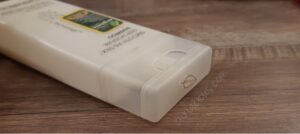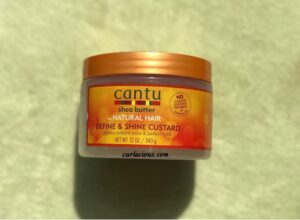I just recently realized that I had not written a post specifically for “cowashing”. Well, I do explain it in this post on “How to care for naturally curly/wavy hair in India“. But, then this topic of Cowashing is something that needs its own post and I am rather late in writing it up.
What is Cowashing?
Conditioner-only washing. Yes! it is as simple as that! Cowashing refers to a method of using conditioner instead of shampoo to wash our hair.
We totally skip the shampoo in our hair wash regimen and replace it with a silicone-free conditioner. There are also specially created products in the market which are used for co-washing.
How to cowash?
The only thing you need for cowashing is a Silicone free conditioner. Get your hands on a good silicone-free conditioner and you are good to go.
The steps to follow for cowash are just like shampooing. You can read a step-wise post here: How to shampoo. Replace your shampoo with the conditioner. I will still mention the steps quickly:
- Wet hair completely
- Take generous amount of silicone-free conditioner and starting at temples, massage into scalp with finger pads.
- Massage and gently scrub whole scalp
- Add extra water and conditioner as and when needed
- Rinse off thoroughly (Very thoroughly)
- Follow-up with detangling and then your silicone-free rinse off conditioner and styling for the lengths of your hair.
Who should cowash?
- Curly haired people with thick and dry hair might find this method highly effective.
- Wavy or not-so-tight curly haired people who are looking for extra moisture for their scalp and hair can also give cowashing a try. However, I would not recommend cowashing exclusively since it can weigh down your hair and cause flat top. You can surely alternate between cowashing and sulfate-free shampoo and enjoy benefits of cowashing without the worry of oiliness or weighing down.
Points to remember while Cowashing:
- Do not use your silicone-containing conditioner for cowashing. Since silicones are meant for coating hair, you might risk clogging your hair follicles.
- If you cowash exclusively, you will need to stop using products with ingredients that cause build-up. That is silicones, oil based ingredients or butters. Use styling gels, conditioners, hair masks and any hair products that has water soluble ingredients. Otherwise you will face build up in hair.
- Make sure you massage and scrub your hair well while washing and rinsing to remove dirt and to clean hair and scalp effectively.
- Here is a list of silicone-free conditioners available in India.
- If you are new to cowashing, read this post about things to keep in mind.
- Do not switch to cowashing completely when starting out. Introduce it once a week and then slowwwly wean off your shampoo.
- Keep a sulfate-free shampoo bottle ready for certain times when you feel a little stronger wash is required.
- Remember, you will never have that “Squeaky Clean” feel of using a sulfate shampoos when you cowash.
- Cowashing might not remove oils from hair. So when you apply oil to hair, say excessive oil, you might want to use a sulfate-free shampoo to wash oil. For me, it didnt work to remove oils but then there are few tight-curlies who find it enough when they apply oil slightly. So you need to experiment with that for yourself.
Does Cowashing work?
Cowashing basically cleans the hair and scalp without stripping it of its natural oils. It is a very mild form of hair cleansing which is meant to keep hair moisturized and prevent from over drying. As I have mentioned in this post regarding How to shampoo, it is considered that hair is washed mainly by the massaging motions and scrubbing with our finger pads and does not need very strong chemicals to wash away the dirt. Mild shampoos and even conditioners work well for that.
Cowashing has been followed by many curlies across the world and it works wonders in keeping their hair moisturized and clean at the same time.
What I do?
I am a 2b-2c Curly who is transitioning from heat damaged hair to my natural hair. I mainly use sulfate-free shampoo and occasionally cowash in between. Till now I have used Enliven, Loreal Smooth Intense (long ago..gonna try this again!) Giovanni smooth as silk or Giovanni Root 66 Max Volume conditioner for cowashing. I used to suggest Enliven Conditioners to everyone who is looking for a budget conditioner for cowash. But I personally do prefer the Giovanni ones.
Now, tell me your preferences?? Do you cowash or only shampoo your hair?

